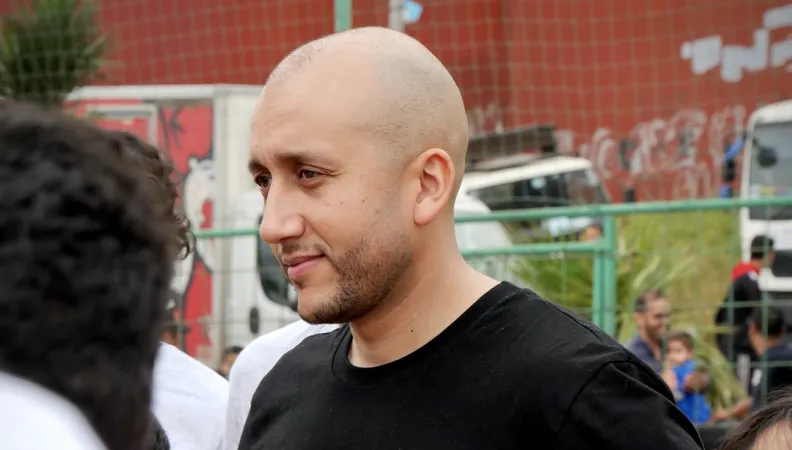Share the page
From Banking to Basketball, Moroccan Referee’s Mission to Make Sports Accessible
Published on

Thirty-four year-old French-Moroccan Najib Chajiddine was the youngest person to referee the basketball matches at this year’s Olympic Games in Paris. He’s also involved, with backing from AFD, in making sports more accessible to young people in Morocco and across Africa.
Away from the Olympics, three-on-three basketball is largely unknown in professional sport. But with fewer people on the court, it’s intense, and puts more pressure on each player. Which isn’t new to Najib Chajiddine, who has toured the world refereeing major international competitions, but who also wanted to “leave something behind, a heritage", as he puts it.
He set up the United Maroc organization to give underprivileged young people better access to sport, especially 3x3 basketball. "The idea was to give young people who wouldn't otherwise have the means or the opportunity to train, play in tournaments or even train to be referees", he said.
His project was one AFD and Paris 2024 supported in 2022 as part of the Impact 2024 International Incubator, a program that helps athletes launch entrepreneurial projects using sport to reduce social and economic inequality.
Further reading: Sport and development: the keys to success
Meetings in disadvantaged areas
It all started three years ago, where Najib Chajiddine was born, in Zenata, Morocco. (He has since been living in France.) "The idea was to visit areas where it wasn't easy to organize free or affordable sports activities ", he said. The young father started by organizing small basketball games in the suburbs of Casablanca when he was on vacation.
The aim was to give young Moroccans from modest backgrounds the opportunity to play basketball without having to go to costly academies. "They cost a lot, from 4,000 to 5,000 dirhams [about €400] a year to train once a week. Very few families can afford to spend so much on a sport per child. I wanted to make sure that the person playing the sport wasn't the one paying for it."
During the eight months he was part of the Impact 2024 International Incubator, he learned to launch a project, with experts on hand to answer his questions. "I was given precious tools, so that I could turn my idea into an actual project", he recalls.
From United Morocco to United Africa
When United Maroc came out of the Incubator, it became the first 3x3-basketball academy in Africa. Two years on, more than 4,000 people in the Kingdom have gotten involved. Three three on three sessions are organized each week. "Young volunteers we've trained in the academy train these youngsters. The idea is that one day the organization employs and pays them. The aim is that we can give them professional prospects and thereby create lasting employment in sport."
Chajiddine met other athletes with similar social commitments. "That's how we arrived at the idea of expanding the organization's projects to Gabon, Senegal and Mali,” he said. “We'll be able to do that thanks to the Malian boxer, Marine Camara. We were both in the same class in the incubator.”
In June, United Maroc became United Africa, as Chajiddine saw no reason to limit the organization's development geographically. He now plans to make his 3x3 basketball academies multisport academies. "From September 2024 we're going to teach boxing for example, and then add other sports, too.”
From football to basketball in Quimper
Najib Chajiddine actually got his start on the football pitch. "I was born in Morocco, but I moved to Quimper in France when I was five. The bad weather meant we couldn't use the football pitches, so we had to find something else to do.
"Basketball was perfect for being able to continue training without the weather stopping us from doing so. From when I was eight, I was able to spend almost every weekend on the court sinking baskets", he said. "As I couldn't play basketball forever I had to find another way to get involved. So I started refereeing and found I liked making decisions!"
His determined, calm nature and natural authority enabled him to become an official referee at 14 years old, and he was spotted by the Brittany league sport study program just a year later.
"I was barely an adult when I became a referee in the French basketball championships. And when I was 34 I got a call asking me to referee at the Paris Olympic Games. It's incredible how far sports can take you."
